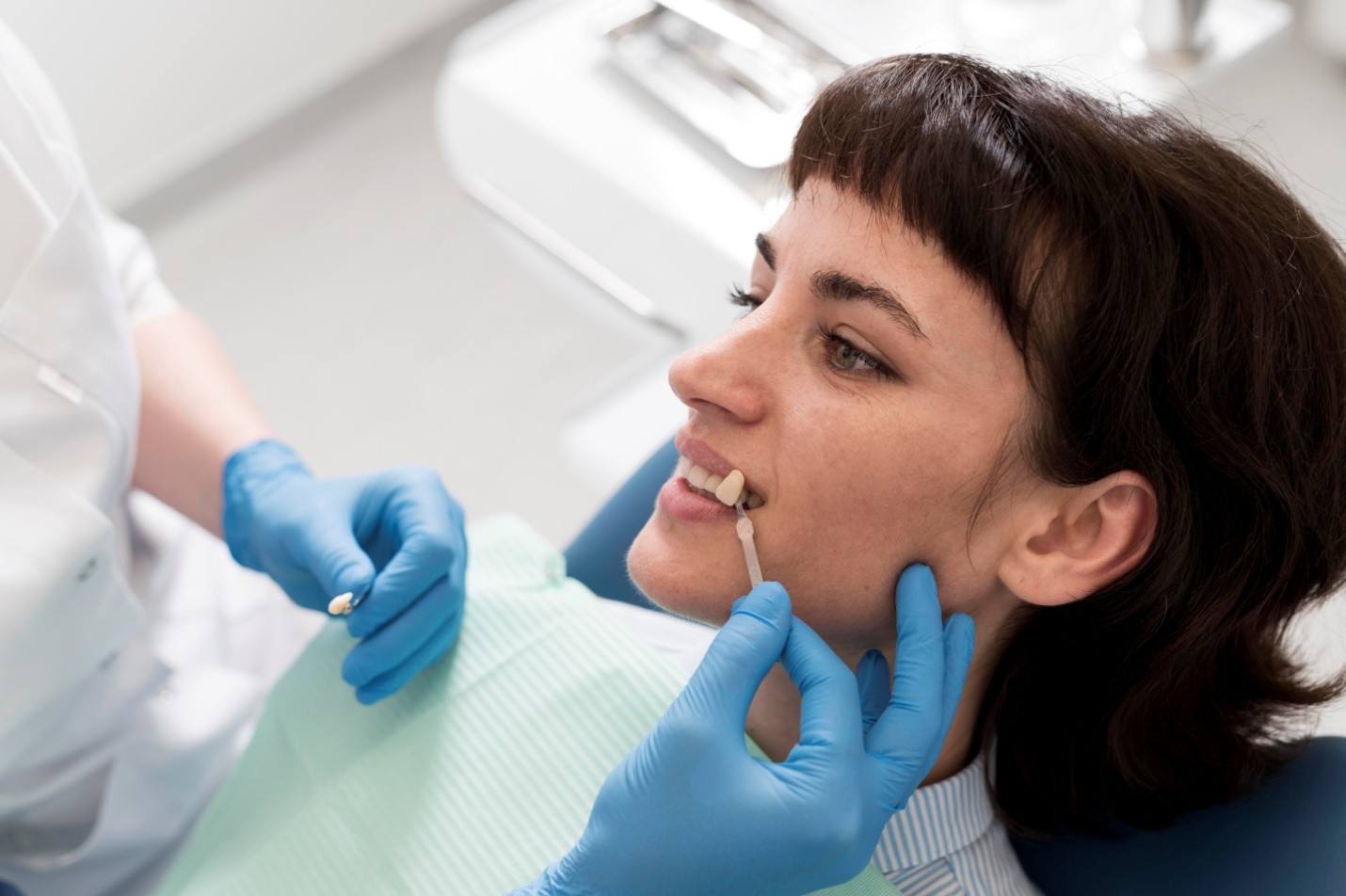How to Prepare for a Dental Implant Procedure
A confident, complete smile is more than just aesthetic—it plays a major role in your overall well-being. Dental implants have become a trusted solution for replacing missing teeth, offering a permanent, natural-looking alternative that restores both function and appearance. However, before you get to that life-changing smile, preparation is key.
Whether you're anxious about the procedure or simply curious about what’s involved, understanding how to prepare for a dental implant can help ease your mind and ensure everything goes smoothly. From lifestyle adjustments to dental evaluations, this guide covers all the essential steps for getting ready.


Why Preparation Matters
Dental implants are placed through a surgical procedure that requires healthy gums, adequate bone structure, and a body ready for healing. Preparing properly helps prevent complications, supports faster recovery, and boosts your chances of a successful, long-lasting implant.
Being informed also makes the process less intimidating. Knowing what to expect removes the guesswork, allowing you to focus on what matters most—your recovery and the beautiful result.
Step 1: Schedule a Comprehensive Dental Evaluation
Every successful implant journey starts with a detailed assessment. During your initial consultation, your dentist or oral surgeon will:
- Review your complete medical and dental history
- Conduct dental X-rays and/or 3D imaging
- Examine bone density and gum health
- Identify any potential complications, such as infections or bone loss
This is the best time to discuss any health concerns, allergies, or medications you’re taking. Some conditions like diabetes, osteoporosis, or smoking may affect healing, so your dentist might adjust your plan accordingly.
Step 2: Prepare for Any Necessary Pre-Treatments
Depending on your oral health, you may need preliminary procedures before implant surgery. These might include:
Tooth Extraction
If a tooth is severely decayed or damaged, it may need to be removed before the implant is placed.
Bone Grafting
If your jawbone has deteriorated or isn’t thick enough, bone grafting will help build a strong foundation for the implant.
Gum Disease Treatment
Healthy gums are essential for implant success. If you have gingivitis or periodontitis, you’ll need treatment before surgery.
Keep in mind: these preparatory steps may add a few weeks or months to your timeline—but they are vital for long-term results.
Step 3: Discuss Sedation and Anesthesia Options
Many people worry about pain during the implant procedure. The good news? Dental implant surgery is typically painless thanks to effective anesthesia.
Common options include:
- Local anesthesia – Numbs the surgical site only
- Oral sedation – A calming pill taken before the procedure
- IV sedation – Offers deeper relaxation, especially for multiple implants
Discuss your anxiety level and preferences with your dentist. Knowing what type of sedation you'll receive helps ease fears and allows you to plan accordingly.
Step 4: Follow Pre-Surgery Instructions
To make sure the day of your procedure goes smoothly, your dental team will give you a list of pre-op instructions. These often include:
- Avoid eating or drinking for 6–8 hours before surgery if sedation is involved.
- Wear loose, comfortable clothing and short sleeves for IV access.
- Brush and floss thoroughly the night before and morning of surgery.
- Avoid alcohol or smoking for at least 24 hours before surgery, as they impair healing.
- Arrange transportation—you’ll need someone to drive you home if you’re sedated.
Stick to these instructions closely to avoid delays or complications.
Step 5: Get Your Home Recovery Zone Ready
After surgery, rest and relaxation are key. Setting up your home in advance will help you focus on healing. Here’s what to prepare:
- Soft pillows to elevate your head
- Cold packs for managing swelling
- Gauze and prescribed medications within easy reach
- A stocked fridge with soft foods like yogurt, soups, mashed potatoes, and smoothies
- Entertainment (books, movies, music)
Having everything ready ensures a peaceful recovery, especially for the first 48 hours when you’ll want to avoid unnecessary movement.
Step 6: Prepare Your Diet
Before and after the procedure, your diet plays a huge role in your comfort and healing.
What to eat before:
- Nutrient-rich meals with fruits, vegetables, lean protein, and whole grains
- Plenty of water to stay hydrated
- Avoid sugary or processed foods that may increase inflammation
What to eat after:
- Soft, cool foods like yogurt, applesauce, mashed bananas, smoothies, scrambled eggs, or pureed soup
- Avoid hard, crunchy, spicy, or hot foods for at least a few days
- Stay away from straws (suction can dislodge healing tissue)
Step 7: Manage Anxiety Proactively
It’s perfectly normal to feel anxious about an upcoming dental procedure. But stress can affect your immune response and healing—so managing it is essential.
Try these calming techniques:
- Practice deep breathing or meditation
- Listen to relaxing music the night before
- Avoid caffeine on surgery day
- Visualize the end result: a full, beautiful smile
Don’t hesitate to share your fears with your dental team—they’re trained to help make your experience as comfortable as possible
Step 8: Understand What Happens Post-Surgery
Knowing what comes next helps you feel in control. After your dental implant surgery:
- Swelling, minor bleeding, and mild discomfort are normal for the first few days
- Your dentist may prescribe pain medication and antibiotics
- Osseointegration (the bonding of implant and jawbone) can take 3 to 6 months
- Once healed, the abutment and crown will be attached
Follow your dentist’s post-op instructions carefully. Rest, hydrate, and avoid strenuous activities for at least 48 hours.
Step 9: Focus on Long-Term Oral Care
Your dental implant is designed to last decades—but only with proper care.
Best practices:
- Brush twice a day with a soft-bristled brush
- Floss daily or use a water flosser to clean around the implant
- Avoid tobacco and limit alcohol
- Visit your dentist every 6 months for cleanings and check-ups
Treat your implant like a natural tooth—it deserves just as much attention.
Step 10: Trust the Process and Be Patient
While dental implants offer amazing long-term benefits, the process takes time. Healing and integration don’t happen overnight. Be patient, stay consistent with care, and trust your dental team to guide you through every phase.
By the end of your journey, you’ll not only regain your smile—you’ll regain comfort, confidence, and freedom in everyday life.
Final Thoughts
Preparing for a dental implant isn’t just about surgery—it’s about setting the stage for a successful outcome and a smile that lasts a lifetime. With proper planning, open communication with your dentist, and a commitment to aftercare, your experience can be smooth, stress-free, and truly rewarding.
If you're ready to take the next step toward restoring your smile, start by booking a professional consultation with a trusted dental clinic. Your new smile—and renewed confidence—await.

